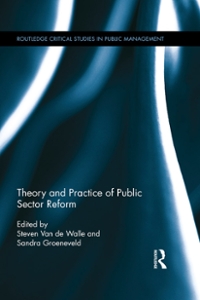Question
The Interdependence of MarketsA tale of demand and supply Imagine what would happen if a vast deposit of high-grade shale oil suitable for fracking was
The Interdependence of MarketsA tale of demand and supply
Imagine what would happen if a vast deposit of high-grade shale oil suitable for fracking was discovered near a small town in the heart of the countryside. Assuming that planning permission was granted, it would trigger off a chain reaction from one market to another.
After the initial survey had been completed the construction phase would begin. New buildings would be required at the wells; new roads would have to be constructed; the land would have to be excavated and wells drilled. There would be a surge in demand for construction materials and construction workers.
Given the need to recruit these construction workers, attractive wages would have to be offered. Some local people may be encouraged by these wages to move from other local jobs, especially if these other jobs were on a casual basis. As a result, wages will be driven up in these other parts of the local economy as employers have to fight to retain their labour. Higher wages will force up the price of local services as employers' costs rise.
Construction jobs will be only temporary. As a result, most of the labour will be brought in from outside the area.
Construction workers moving into the area would need somewhere to live. This would create a demand for (temporary) rented accommodation. As a result, rents will rise. They will also spend their money in the local shops. Shopkeepers may have to recruit extra staff, and may well have to offer higher wages to do so.
After the construction and drilling phases the wells will come into operation. Oil workers will be employed. Unlike the construction workers, they will require permanent accommodation. This will create a demand for new homes and drive up house prices. House builders, anticipating the influx of labour, may have already started building new houses. This will have created a demand for building workers and building materials.
New shops, schools, bus services, recreation facilities, petrol stations, etc will probably open. Each will require factors of production. This will drive up the price of those factors.
To summarise: a change in one market - opening up wells - will produce a series of knock-on effects. Extra demand in one market creates extra demand in others. In each case the resulting higher prices will help choke off some of the excess demand, but at the same time will encourage extra supply to be forthcoming.
Questions
Read the case study and answer the following questions
- Why werehouse prices in Aberdeen the highest in the UK in the late 1970s? Why did they fall in the mid 1980s and in 2016?
- Trace through the effects on a small mining town of the closure of the local pit.
Step by Step Solution
There are 3 Steps involved in it
Step: 1

Get Instant Access to Expert-Tailored Solutions
See step-by-step solutions with expert insights and AI powered tools for academic success
Step: 2

Step: 3

Ace Your Homework with AI
Get the answers you need in no time with our AI-driven, step-by-step assistance
Get Started


